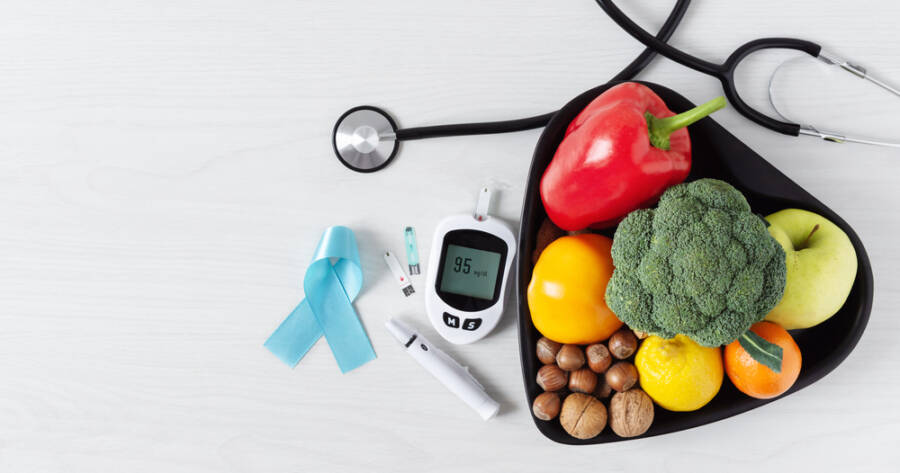Managing diabetes can feel challenging, but a variety of treatment options may help individuals maintain better blood glucose levels and improve overall well-being. From lifestyle changes to advanced medical treatments, many avenues are available to explore.
1. Diet and Lifestyle Modifications
Lifestyle changes are often the first step in managing diabetes. For many individuals, carefully planned meals with a focus on portion control and nutrient balance may assist in stabilizing blood sugar levels.
- Diet: Incorporating high-fiber foods, lean proteins, and healthy fats can potentially lower the risk of sudden blood sugar spikes. Monitoring carbohydrate intake is also key, as carbs directly affect glucose levels.
- Exercise: Regular physical activity—such as walking, swimming, or strength training—might improve insulin sensitivity, helping cells absorb glucose more effectively. Even small changes, like 30 minutes of light exercise daily, could make a noticeable difference over time.
While these interventions can be effective for many, they may not eliminate the need for medication or other treatments, particularly in advanced cases of diabetes.
2. Oral Medications and Insulin Therapy
If lifestyle modifications alone are insufficient, medications are commonly prescribed to help regulate glucose levels.
- Oral Medications: There are several classes of oral drugs that can support blood sugar control. For example, metformin is often recommended as a first-line treatment for type 2 diabetes, as it may reduce the liver’s glucose production. Other medications, such as sulfonylureas or DPP-4 inhibitors, function differently and could be prescribed based on individual needs.
- Insulin Therapy: Some individuals, particularly those with type 1 diabetes or advanced type 2 diabetes, require insulin therapy. Depending on the treatment plan, rapid-acting, long-acting, or mixed insulins may be used. The goal is to mimic natural insulin release, although adjustments might be needed based on daily activity and diet.
It is important to follow healthcare recommendations closely when starting medications, as dosages may vary and side effects could occur.
3. Continuous Glucose Monitoring and Insulin Pumps
Advancements in technology offer additional tools for individuals with diabetes. These devices can support better control by providing real-time data or automatic insulin delivery.
- Continuous Glucose Monitoring (CGM): CGM systems track glucose levels throughout the day and night, alerting users when levels rise or drop unexpectedly. This tool can reduce the need for frequent finger-stick testing.
- Insulin Pumps: Pumps provide a continuous flow of insulin through a small catheter placed under the skin. They allow for more flexible meal planning and activity since insulin delivery can be adjusted as needed.
While these devices may not be suitable for everyone, they offer promising ways to enhance treatment plans for those who need more precise glucose management.
4. Newer Treatments: GLP-1 Agonists and SGLT-2 Inhibitors
Beyond traditional treatments, newer medications have shown potential benefits for people with type 2 diabetes.
- GLP-1 Receptor Agonists: These drugs, such as semaglutide or liraglutide, help regulate blood sugar by mimicking hormones involved in glucose control. They may also promote weight loss, which can further improve insulin sensitivity.
- SGLT-2 Inhibitors: Medications like empagliflozin and dapagliflozin encourage the kidneys to excrete excess glucose through urine. Some studies suggest these drugs could also offer cardiovascular and kidney-protective benefits, though individual responses vary.
These medications may not be appropriate for everyone and typically involve specific risks, so consultation with a healthcare provider is essential.
5. Holistic and Complementary Approaches
While conventional treatments remain the cornerstone of diabetes care, some individuals explore complementary therapies to enhance their well-being.
- Supplements: Some research suggests that supplements like cinnamon, chromium, or alpha-lipoic acid might modestly affect blood sugar, though evidence is mixed, and these should never replace prescribed treatments.
- Stress Management: High stress levels can contribute to glucose fluctuations, so practices like mindfulness, yoga, or meditation may help support emotional well-being.
- Alternative Medicine: Acupuncture and herbal therapies have been explored for their potential effects on glucose control, though more robust research is needed.
Individuals pursuing complementary approaches should always discuss them with their healthcare provider to ensure safety and avoid interactions with prescribed medications.
Find Help Today!
Managing diabetes requires a tailored approach that aligns with individual needs and preferences. From lifestyle changes to advanced medical treatments, multiple options are available to consider.
While there are no guarantees of specific outcomes, working closely with healthcare providers ensures that people living with diabetes can explore the best treatment options for their unique situation.
